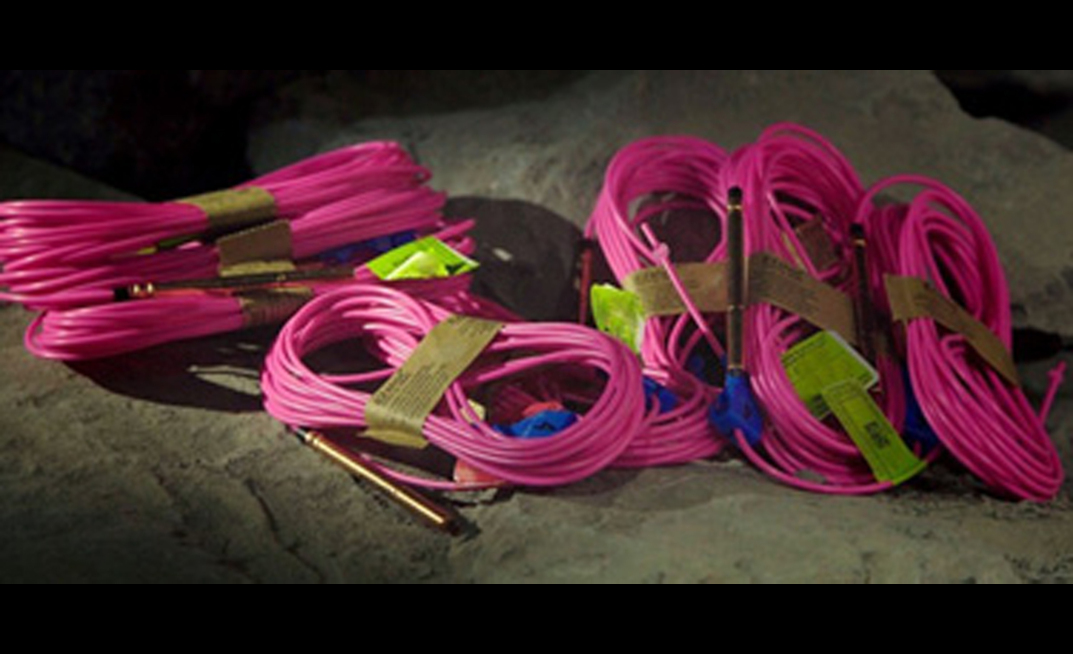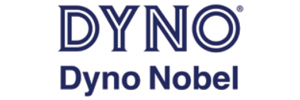With the end goal of reducing overall mine costs, the first steps towards automation are simple; identify repeatable tasks with the biggest efficiency payoff and eliminate human error.
The time required for manual loading and tagging of individual detonators along a blast plan is one of the biggest drill and blast challenges open cut mining companies face.
The size of these blasts can range from just a few blastholes, up to the latest world record for the largest electronic blast held by Dyno Nobel, which saw the safe firing of more than 12,500 detonators across 3,860 blastholes in 2020.
The typical loading process requires drilling, blasthole numbering, quality control, priming, charging and tagging which can take anywhere from a couple of hours to weeks involving numerous personnel.
Tagging alone is time intensive and can require personnel to visit each blasthole multiple times during the blast preparation process.
Automation of this blasthole loading process is a solution to maximise efficiency, increase safety by removing operators from the bench and reduce errors when tagging detonators ahead of firing.
With the addition of Dyno Nobel's Differential GPS (DGPS) technology to its already proven DigiShot® Plus.4G electronic initiation system, there is now a highly competitive and efficient system available today which brings the industry a step closer to automation.
This technology pairs high precision GPS capability with the existing DigiShot Plus.4G tagger and CE4 Commander system, to deliver an enhanced spatial positioning accuracy of each blasthole down to less than one metre.
Vice President Initiating Systems Technology, Dirk Van Soelen says, "All of our technology in the initiation systems pipeline starts with solving our customers' biggest challenges, from the downline wire and detonator, to the full integrated system. Our DGPS technology is no exception.
"We've developed an innovative product that has the potential to eliminate human error, while speeding up the overall detonator tagging process. This translates to clear efficiencies, labour cost savings and a leap towards future blasting automation.
"Dyno Nobel now has a very powerful initiation system incorporating DGPS which removes a time intensive and sometimes error prone part of the blasting process.
"Trials with iron ore and hard rock customers have been conducted at a number of different sites in Australia over the past 18 months. To date, the trials have been successful in demonstrating clear potential for improving blast implementation and reducing overall mining costs."
In addition, DGPS uses real time graphical deployment data which allows the user to uniquely identify a blasthole without the need to follow a specific tagging path. This offers greater flexibility and control over the blast plan which has shown improved blast reliability during recent trials.
Technical Specialist, Nico Swart said, "During the first introduction of our DGPS technology at a customer's site, a section of the blasthole numbers were identified to be out of sequence.
"In subsequent trials at other sites, more incorrectly marked blastholes were identified; especially when on contour patterns that generally have no or few identifying markers.
"The ability to uniquely identify blastholes when there are no visual cues removes the time-consuming error correction at a later stage.
"So far, we've seen promising results, with the simplicity of the transition to using the DGPS technology with our existing DigiShot Plus.4G system requiring minimal training."
Currently semi-autonomous, this latest technology is designed to translate into fully autonomous (robotic) deployment and tagging in future.
The result brings us closer to the automated future, aiming to ensure faster blast deployment through greater accuracy and increased efficiency, with the potential for elimination of human error.
To read more about DGPS and the DigiShot Plus.4G system, visit:
https://www.dynonobel.com/apac/recent-innovations/digishot-plus-4g
ABOUT THIS COMPANY
Dyno Nobel Asia Pacific Pty Limited
Dyno Nobel is a global leader in the commercial explosives industry with more than 3,770 employees. We manufacture over 54 million pounds of packaged explosives and more than 1.2 million tons of ammonium nitrate capacity. We have 32 manufacturing facilities on three continents and our Engineering and Technology team supports product sales, as well as the use of our cutting-edge technologies around the world. Dyno Nobel is the Practical Innovator, the Industry Expert and a Committed Partner.
OFFICES:
Brisbane:
- 282 Paringa Road, Gibson Island, Murarrie, Brisbane QLD 4172, Australia
- Phone: +61 7 3026 3900
Perth:
- Level 2, Suite 3, 233 Adelaide Terrace, Perth WA 6000, Australia
- Phone: +61 8 6188 3000
Website:


























